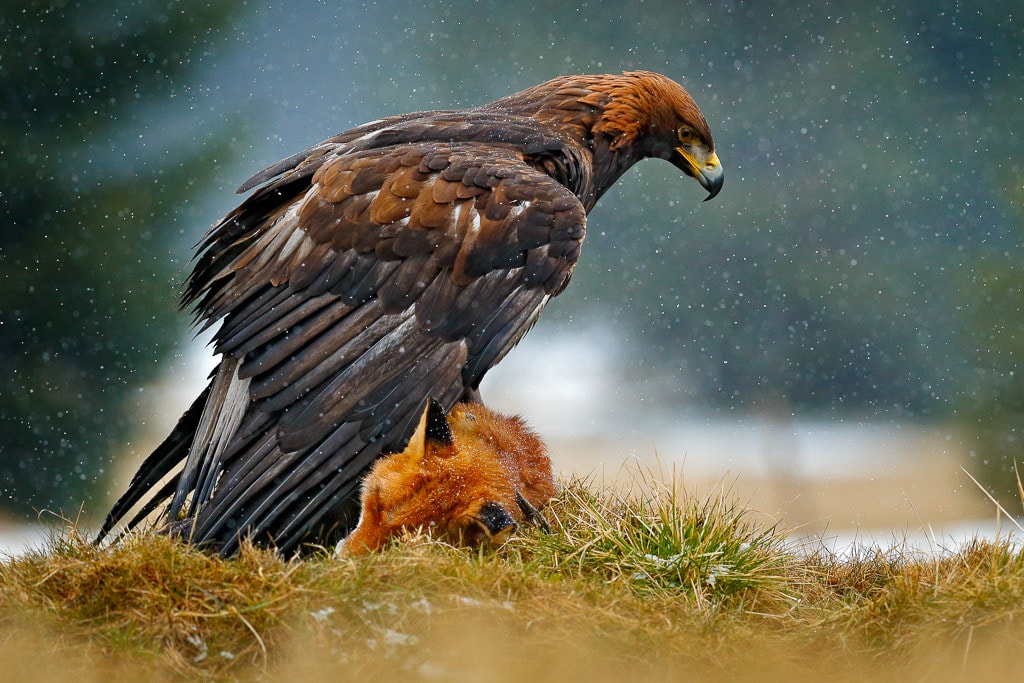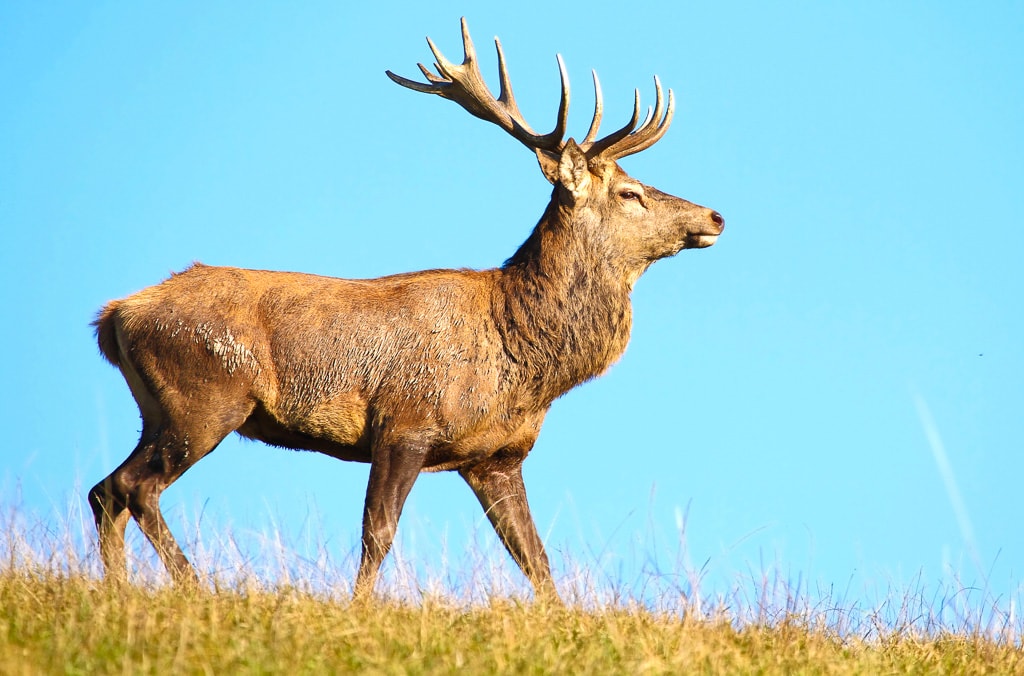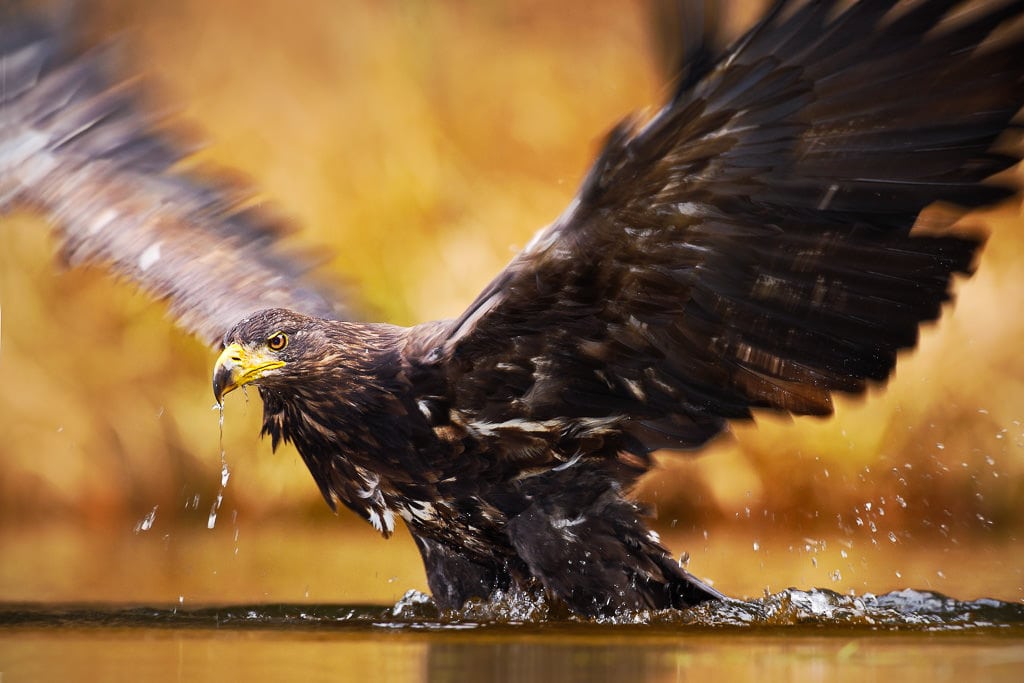Do you need to create superb wildlife
pictures, however you’re unsure how?
Then learn on.
As a result of this text will provide you with 6 wildlife pictures suggestions for persistently superb images. You’ll uncover how one can discover the very best mild, how one can create wonderful compositions, and how one can get frame-filling wildlife images.
Wildlife Pictures Suggestions
Let’s dive proper in
Tip 1: Use the Low, Sluggish Strategy
to Get Near Wildlife
One of many greatest challenges confronted by
newbie wildlife photographers:
Getting shut.
You see, irrespective of how lengthy your lens, you’ll nonetheless have to do some actual work within the discipline – in an effort to seize frame-filling wildlife images.
See additionally: Lens Wanted for Wildlife Pictures
There are a number of methods you may get shut sufficient
to wildlife to seize stunning pictures.
However my favourite is the low, sluggish method,
which is often profitable and is nice for conditions the place you haven’t
arrange a blind upfront.
Right here’s the way it works:
- Begin by discovering a topic you could see within the distance, and place your self in order that the sunshine is at your again.
- Then transfer ahead slowly, with a lot of stops and begins, and with none sudden strikes. Preserve your head down and don’t make eye contact with the wildlife.
- Transfer to the correct for a number of moments, then wander left, then stand nonetheless for a bit. However ensure you proceed to maneuver in the identical total course so that you just’re making progress getting near your topic.
- When you get decently shut, it is best to drop all the way down to your knees, and even to your elbows (for those who’re keen). Proceed to maneuver towards the wildlife whereas retaining your head down. However take it even slower, dragging your self a number of ft earlier than stopping. Monitor your topic out of the nook of your eye.
- At this level I like to recommend you snap a number of images in order that the wildlife can get used to the sound of a digicam shutter.
Proceed on for a bit…
…till you’re shut sufficient to begin taking
images. Then cease, and begin snapping pictures.
If all goes properly, your complete course of might take
15-45 minutes; be affected person and don’t rush issues.

Additionally, a word:
The welfare of your topic is vital. If
you’re photographing an animal that’s clearly burdened, then cease. It’s not
value capturing the shot for those who can’t be happy with the story behind it.
Tip 2: Level Your Shadow on the
Wildlife for the Finest Lighting
One of many issues newbie wildlife photographers wrestle with on a regular basis is the mild.
It’s really easy to exit throughout harsh, disagreeable daylight – and are available away with a reminiscence card filled with poor images.
As a result of noon sunny mild doesn’t actually work for wildlife pictures. As a substitute, it is best to shoot on cloudy days, or throughout the golden hours.
But it surely’s not sufficient to only present up at dawn and sundown, level your digicam on the topic, and begin capturing. It’s important to do greater than that.
The important thing factor to recollect is to concentrate
to the sunshine’s course.
The very best mild for wildlife pictures comes from behind the photographer and falls straight onto the topic. That is generally taught as a ‘level your shadow on the wildlife,’ as a result of yow will discover the very best mild by doing simply that; pointing your shadow at your topic ensures that you just get some stunning frontlight.
Now, it’s also possible to seize some distinctive images
by using sidelight (the place the sunshine falls onto the facet of the wildlife),
and even backlight (the place the sunshine comes from behind the wildlife). However these
are non-standard lighting situations, and take some endurance to take care of.
That’s why I like to recommend newbies begin with frontlight, and solely then graduate
to tougher mild selections.
Tip 3: Place the Wildlife
Transferring Into the Body
With regards to truly composing a wildlife
photograph, it’s possible you’ll wrestle to rigorously place an animal within the body.
It’s particularly tempting to stay your topic within the lifeless heart of the photograph, however resist this temptation as a result of that is without doubt one of the worst potential issues you are able to do.
As a substitute, strive level your wildlife into the body, so it looks like the animal is working into the empty area (no matter whether or not they are surely).
See additionally: Tutorials for Wildlife Pictures for Freshmen
It will give your photograph a way of dynamism just like the animal is transferring. Plus, the viewer will observe the gaze of the animal straight into the remainder of the photograph (in different phrases, they’ll turn out to be engaged!).

Observe that it’s not sufficient to only place the wildlife so it’s transferring into the body. You’ll additionally need to ensure you don’t minimize off the again of the animal as a result of that can make the photograph really feel disjointed. As a substitute, add a bit off room on the again, in addition to the highest and backside.
Associated: Composition in Pictures – Sensible Information
Oh, and just be sure you don’t minimize off the
wildlife’s ft! As a result of that mainly by no means works.
You need to find yourself with an animal transferring into
the body, with satisfactory room on the highest, backside, and sides.
An ideal wildlife composition!
Tip 4: Shoot from a Low Angle for
Intimate Wildlife Photographs
Right here’s a extra superior wildlife pictures
tip for you:
Get down low to {photograph} wildlife. Actually low.
Principally, you ought to be on the identical degree because the wildlife–on the very least.
See additionally: Hen Pictures Tools
So for those who’re photographing a small hen on the
floor, you ought to be pressed flat towards the dust. For those who’re photographing a
moose, you might be standing up pretty straight, although relying in your peak
it’s possible you’ll have to kneel down a bit.
Why is that this so vital?
As a result of images taken from standing peak are…boring. They really feel such as you simply walked by and took a snapshot.

Whereas images taken from down low, with you
capturing on a degree with the wildlife really feel a lot extra thrilling and
attention-grabbing and intimate.
It’ll take some effort. It’ll take some
willingness to get soiled.
But when you may get on a degree along with your
topic, your images will look so a lot better.
Tip 5: Select the Cleanest
Background that Enhances the Topic
Choosing the right background is a key wildlife pictures problem and one that the majority newbies simply don’t acknowledge.
As a result of the correct background will make your topic stand out. It’ll make your topic pop off the web page.
Associated: Foreground, Middleground and Background in Pictures
Now, the very best backgrounds are very clear. They
include no distractions. Nothing that would draw the attention away from the
wildlife.
One of many methods to make sure you get a clear
background is by utilizing a large open aperture, however this comes with a downside:
You gained’t get the entire animal sharp.

And on the whole, you need to maintain the wildlife sharp. So as a substitute of utilizing a vast open aperture, I’d suggest rigorously positioning your self in order that the gap between the topic and the background is as giant as potential. The bigger this distance, the blurrier the background will turn out to be. And the cleaner the background will look.
See additionally: Finest Nikon lenses for hen pictures
By the best way, a cool trick to extend the
subject-background distance is to get down low. It will trigger the background
to fall away, and also you’ll get a pleasant blur (plus, you’ll get the intimate
perspective I talked about above!).
Another factor I ought to word:
Some backgrounds are simply too messy to work
with, even for those who’re utilizing a large aperture, and even when the subject-background
distance is adequate. So that you don’t be afraid to only hand over on a background,
particularly as a result of you may usually stroll to the correct or left and get a background
that’s fully totally different.
Tip 6: Use Steady Capturing
Modes and ‘Spray and Pray’
Wildlife pictures is usually very fast-paced.
Actually, it’s possible you’ll spend hours ready for a shot that seems and disappears in a single immediate.
See additionally: Finest Inexpensive Digital camera for Wildlife Pictures
Which signifies that it’s a must to be prepared for
something–any movement of the wildlife, any attention-grabbing habits, and so on.
That’s why I like to recommend you set your digicam in its steady capturing mode in an effort to seize the very best variety of frames per second potential.

And be prepared along with your finger on the shutter button. If it’s a must to take dozens of photographs to get the one one which works, that’s tremendous. You may delete all of the unhealthy images later–when you’ve grabbed the million greenback shot.
See additionally: Wildlife Pictures Settings
So don’t be afraid to shoot as quickly because the
willdife begins doing one thing attention-grabbing, and don’t be afraid to hold on
holding down your finger till the wildlife stops.
That’s the way you’ll maximize your variety of
keepers.
Prime 6 Pictures Suggestions for Gorgeous Photographs: Conclusion
Now that you just’ve completed this text, you
have all of the wildlife suggestions it is advisable create superb wildlife pictures.
So simply bear in mind what I’ve instructed you:
- Fastidiously get shut.
- Use frontlight as a lot as potential.
- Level the topic into the body.
- Get down low.
- Decide the cleanest background potential.
- {Photograph} in bursts.
- And have enjoyable capturing!


